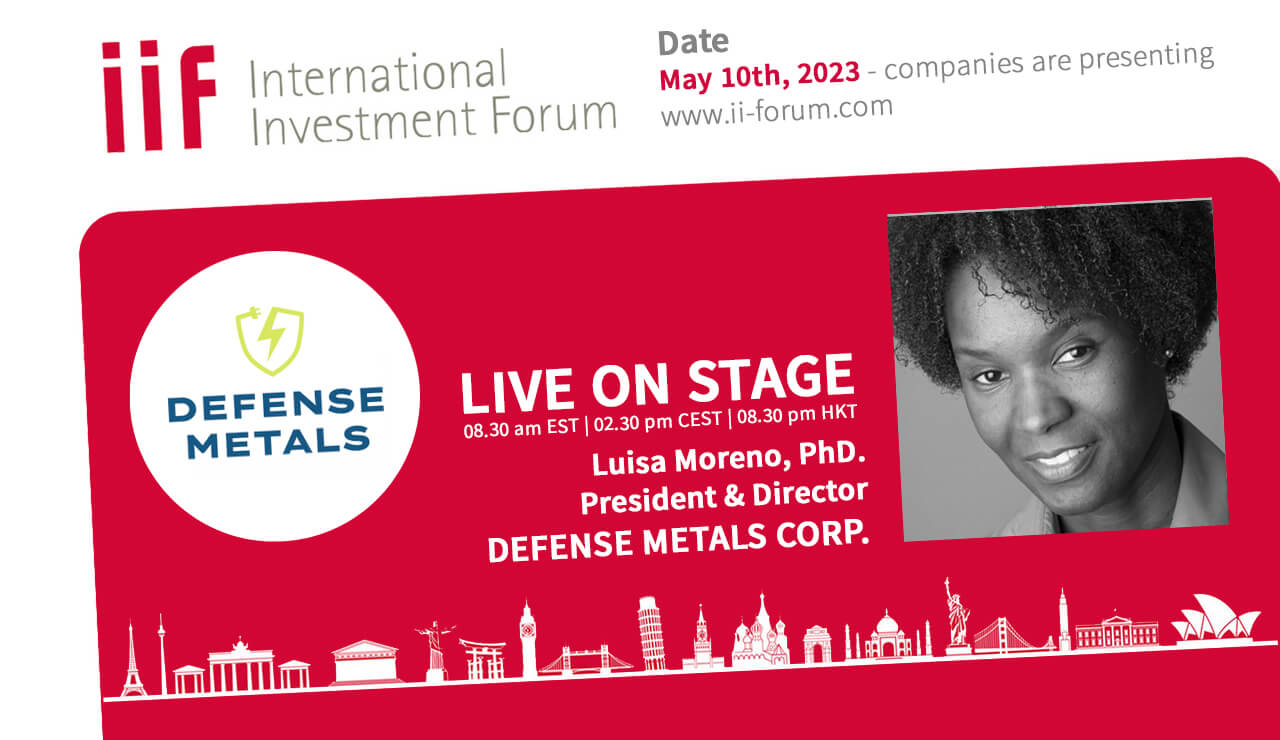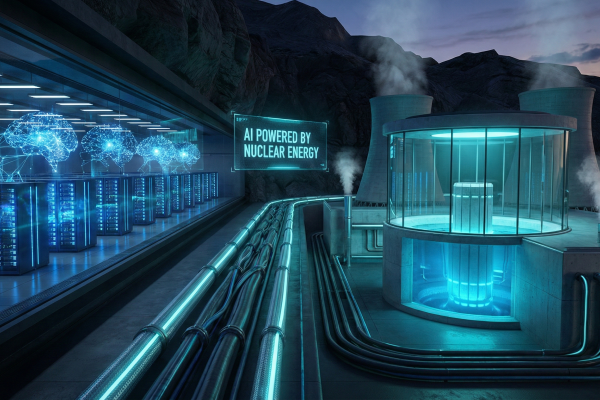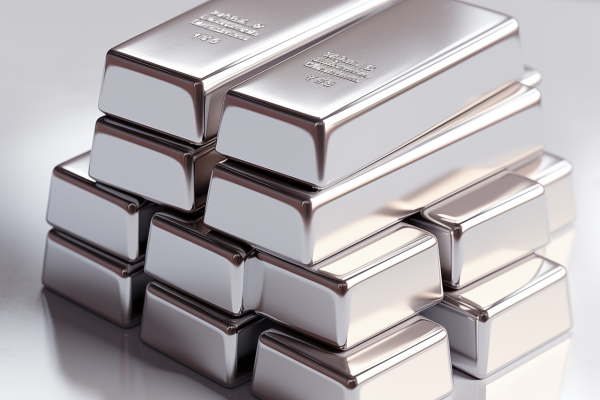May 2nd, 2023 | 08:55 CEST
ThyssenKrupp, Defense Metals, Rheinmetall - US subsidizes rare earths
Rare earths have long been on the list of critical metals in the US and Europe. As tensions build between the US and China over Taiwan, it is important to remember how critical rare earths are. Currently, China has a virtual monopoly, especially in terms of refining. In addition to high-tech products such as smartphones, the critical raw material is needed for steel alloys, in the military and above all, for the energy transition, including electric vehicles. The US now wants to promote the mining of rare earths in its own country and rewards this with a tax credit of up to USD 30 per kg. We, therefore, look at 3 companies that rely on rare earths.
time to read: 4 minutes
|
Author:
Armin Schulz
ISIN:
THYSSENKRUPP AG O.N. | DE0007500001 , DEFENSE METALS CORP. | CA2446331035 , RHEINMETALL AG | DE0007030009
Table of contents:
Author
Armin Schulz
Born in Mönchengladbach, he studied business administration in the Netherlands. In the course of his studies he came into contact with the stock exchange for the first time. He has more than 25 years of experience in stock market business.
Tag cloud
Shares cloud
ThyssenKrupp - Another board change
For the steel industry, rare earths are indispensable as alloys. Together with the aluminium industry, around 20% of rare earth production is consumed in this sector. Accordingly, ThyssenKrupp is also dependent on this critical raw material. For several years now, the Materials Trading business line has been expanding its trade in rare earths. At the end of last year, the Group invested EUR 100 million in the competence centre for electromobility in Bochum. In the future, thinner and harder steel for the automotive industry will be produced there. Already today, 1-3 kg of rare earths are used per electric car.
At the moment, however, the focus is on the change of personnel at the top of the Group. On April 24, CEO Merz asked the supervisory board to terminate her contract in a timely manner. This surprised market participants, as her contract had only been extended last year, and the share price plummeted. After all, the boss probably wants to forego a severance payment. The supervisory board presented Miguel Ángel López Borrego, CEO of NORMA Group, as her successor. It remains to be seen whether he can stay in office longer than his predecessors.
The new boss will take office on June 1. One can be curious about the future strategy because the Group's transformation has stalled due to the Corona pandemic. The Group's steel subsidiary may be sold. Emirates Steel Arkan is rumoured to be interested. The share fell to EUR 6 after the news of the board change. In this area, there is a support zone from which the share has bounced upwards. Currently, one pays EUR 6.50 for one share.
Defense Metals - Phase II of the pilot plant has started
Defense Metals is an advanced rare earths exploration company with the 100% owned Wicheeda project. The project has the potential to become a significant global producer, accounting for approximately 10% of current global rare earth production. The project has excellent infrastructure and hosts an Indicated Mineral Resource of 5 million tonnes averaging 2.95% TREO and an Inferred Mineral Resource of 29.5 million tonnes averaging 1.83% TREO. The Company has already completed a preliminary economic assessment and is in the process of completing a pre-feasibility study.
On April 12, the Company announced that Phase I of the hydrometallurgical pilot plant at SGS Lakefield was successfully completed. The Company confirmed and optimized the flow sheet of the planned hydrometallurgical process during a 5-day operation. The initial results produced a yield of over 90%. Phase II was started on April 25 and is expected to last 10 days, using data from Phase I for optimization. The results will provide much material for technical planning and environmental testing. At the same time, this will further advance the pre-feasibility study.
Financing for the project is secured, with a private placement recently raising around CAD 12.5 million. As an anchor investor, RCF Opportunities Fund II LP invested CAD 6.6 million and received about 25.7 million shares in return. Interestingly, no warrants were issued. Since April 10, the Company has been a member of the Discovery Group, an association of listed companies. Those who want to learn more about the Company should watch the Company presentation at the 7th International Investment Forum on May 10. (https://ii-forum.com/speaker/dr-luisa-moreno-president-director-defense-metals-inc/) The share is currently trading at CAD 0.275, which is above the issue price of the new shares.

Rheinmetall - Wave of orders in April
In 2019, during the trade dispute between the US and China, the German government recognized the importance of rare earths in the military sector and issued a working paper for security policy. This shows that the critical raw material is of strategic importance for the future viability of our armed forces. At the latest since the outbreak of the Ukraine conflict, this topic has moved into the centre of attention, and the German government has granted the Bundeswehr special funds of EUR 100 billion. Ideal conditions for one of the leading suppliers to the Bundeswehr like Rheinmetall.
Rheinmetall has driven its growth through strategic acquisitions, partnerships and expansion into new markets. Recently, the Company announced a strategic partnership with Helsing to develop software-controlled weapon systems. The Company's order book is at a record high and is expected to continue for years to come. In April alone, the Group announced 7 orders, including 2 large orders of over EUR 200 million each. The largest order, worth EUR 770 million, comes from the German Armed Forces, which wants to have 143 PUMA tanks modernized by 2029.
On April 21, a cooperation with Lockheed Martin was also announced, which will jointly develop a new type of rocket artillery system. The 1st quarter report is due on May 4. Poor figures would be a surprise. The share has been in rally mode since September last year. There are hardly any setbacks. Currently, one share costs EUR 265.50. On May 9, the annual general meeting will decide on the dividend. EUR 4.30 per share is expected, corresponding to a dividend yield of 1.6 %.
The demand for rare earths will increase in the coming years. To reduce dependence on China, one has to look for alternatives. One could be Defense Metals, which can cover about 10% of the current global demand with about 25 t per year. ThyssenKrupp needs rare earths for its steel alloy. At the moment, however, the focus is on the change in the management board. The critical metal is also used in several military products. Rheinmetall will profit from the arms boom in the coming years.
Conflict of interest
Pursuant to §85 of the German Securities Trading Act (WpHG), we point out that Apaton Finance GmbH as well as partners, authors or employees of Apaton Finance GmbH (hereinafter referred to as "Relevant Persons") may hold shares or other financial instruments of the aforementioned companies in the future or may bet on rising or falling prices and thus a conflict of interest may arise in the future. The Relevant Persons reserve the right to buy or sell shares or other financial instruments of the Company at any time (hereinafter each a "Transaction"). Transactions may, under certain circumstances, influence the respective price of the shares or other financial instruments of the Company.
In addition, Apaton Finance GmbH is active in the context of the preparation and publication of the reporting in paid contractual relationships.
For this reason, there is a concrete conflict of interest.
The above information on existing conflicts of interest applies to all types and forms of publication used by Apaton Finance GmbH for publications on companies.
Risk notice
Apaton Finance GmbH offers editors, agencies and companies the opportunity to publish commentaries, interviews, summaries, news and the like on news.financial. These contents are exclusively for the information of the readers and do not represent any call to action or recommendations, neither explicitly nor implicitly they are to be understood as an assurance of possible price developments. The contents do not replace individual expert investment advice and do not constitute an offer to sell the discussed share(s) or other financial instruments, nor an invitation to buy or sell such.
The content is expressly not a financial analysis, but a journalistic or advertising text. Readers or users who make investment decisions or carry out transactions on the basis of the information provided here do so entirely at their own risk. No contractual relationship is established between Apaton Finance GmbH and its readers or the users of its offers, as our information only refers to the company and not to the investment decision of the reader or user.
The acquisition of financial instruments involves high risks, which can lead to the total loss of the invested capital. The information published by Apaton Finance GmbH and its authors is based on careful research. Nevertheless, no liability is assumed for financial losses or a content-related guarantee for the topicality, correctness, appropriateness and completeness of the content provided here. Please also note our Terms of use.




